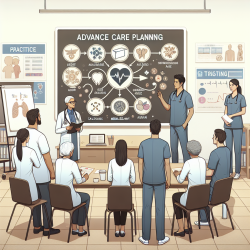In an era where economic inequality is a pressing global issue, education remains a pivotal tool in leveling the playing field. The research article "Inequality, Education, Workforce Preparedness, and Complex Problem Solving" by Patrick C. Kyllonen provides valuable insights into how education can mitigate inequality by fostering complex problem-solving skills. These skills are essential for navigating the increasingly complex demands of the modern workforce.
The Role of Education in Reducing Inequality
Education has long been heralded as the "great equalizer," a notion supported by historical figures like Horace Mann and modern leaders such as former U.S. President Barack Obama. By equipping individuals with both domain-specific and domain-general skills, education enhances not only earning potential but also life satisfaction, social interaction, and decision-making abilities.
Complex problem-solving (CPS) skills are particularly valuable as they enable individuals to tackle novel and ill-defined challenges across various real-world settings. These skills are highly sought after by employers and are likely to remain crucial as technological advancements continue to reshape the job market.
Understanding Complex Problem Solving
CPS involves solving problems that are not immediately obvious and require a strategic approach to navigate through complexity. According to the research, CPS is not merely a collection of specialized skills but a coherent construct that can be developed and transferred across different domains.
The Programme for International Student Assessment (PISA) has highlighted the importance of CPS by including it in their assessments. These evaluations reveal that nations with strong economies often outperform others in CPS, suggesting that their educational systems are effectively instilling these critical skills in students.
Strategies for Developing CPS Skills
- Direct Instruction: Implementing direct teaching methods focused on general problem-solving strategies can enhance students' ability to tackle complex problems.
- Collaborative Learning: Encouraging group problem-solving activities helps develop collaborative CPS skills, which are increasingly valued in team-oriented work environments.
- Real-World Applications: Integrating real-world scenarios into the curriculum allows students to apply their problem-solving skills in practical settings.
- Formative Assessments: Utilizing formative assessments can provide ongoing feedback to students and educators about progress in developing CPS skills.
The Future of CPS in Education
The research underscores the need for educational institutions at all levels to prioritize CPS as part of their curricula. By doing so, schools can better prepare students for future workforce demands and help reduce the negative impacts of inequality on individual opportunities.
The integration of CPS into educational frameworks aligns with global trends emphasizing the importance of flexible, generalist skills that complement technological advancements. As such, educators are encouraged to explore innovative teaching methods that foster these capabilities among students.
Conclusion
The ability to solve complex problems is a critical skill for success in today's dynamic workforce. By focusing on developing these skills within educational systems, we can better equip future generations to overcome challenges posed by economic inequality and technological change.
For practitioners looking to improve their skill set or delve deeper into this subject matter, further research is encouraged. Understanding the nuances of CPS and its role in education will be instrumental in shaping effective teaching strategies that prepare students for an uncertain future.
To read the original research paper, please follow this link: Inequality, Education, Workforce Preparedness, and Complex Problem Solving.










